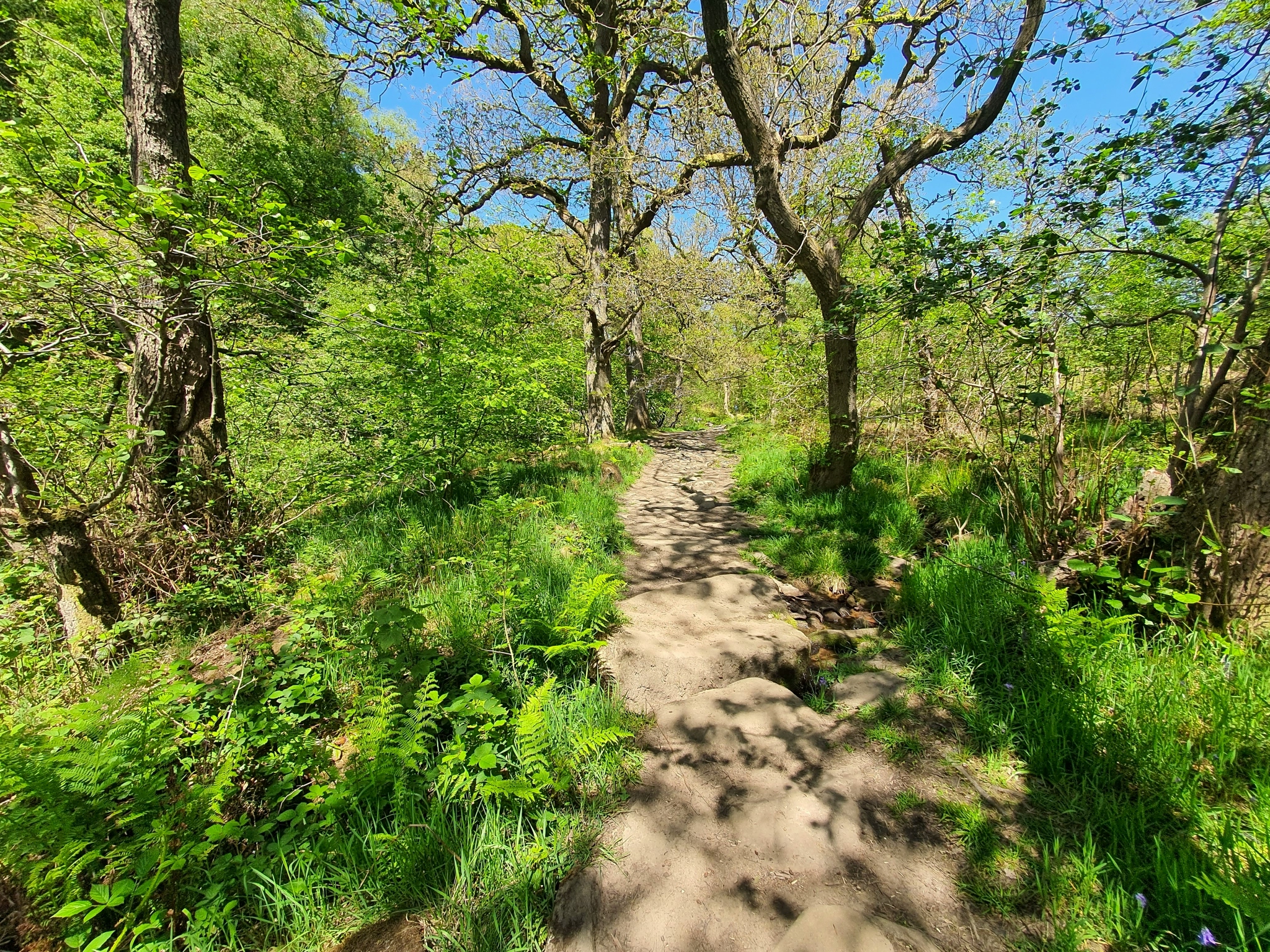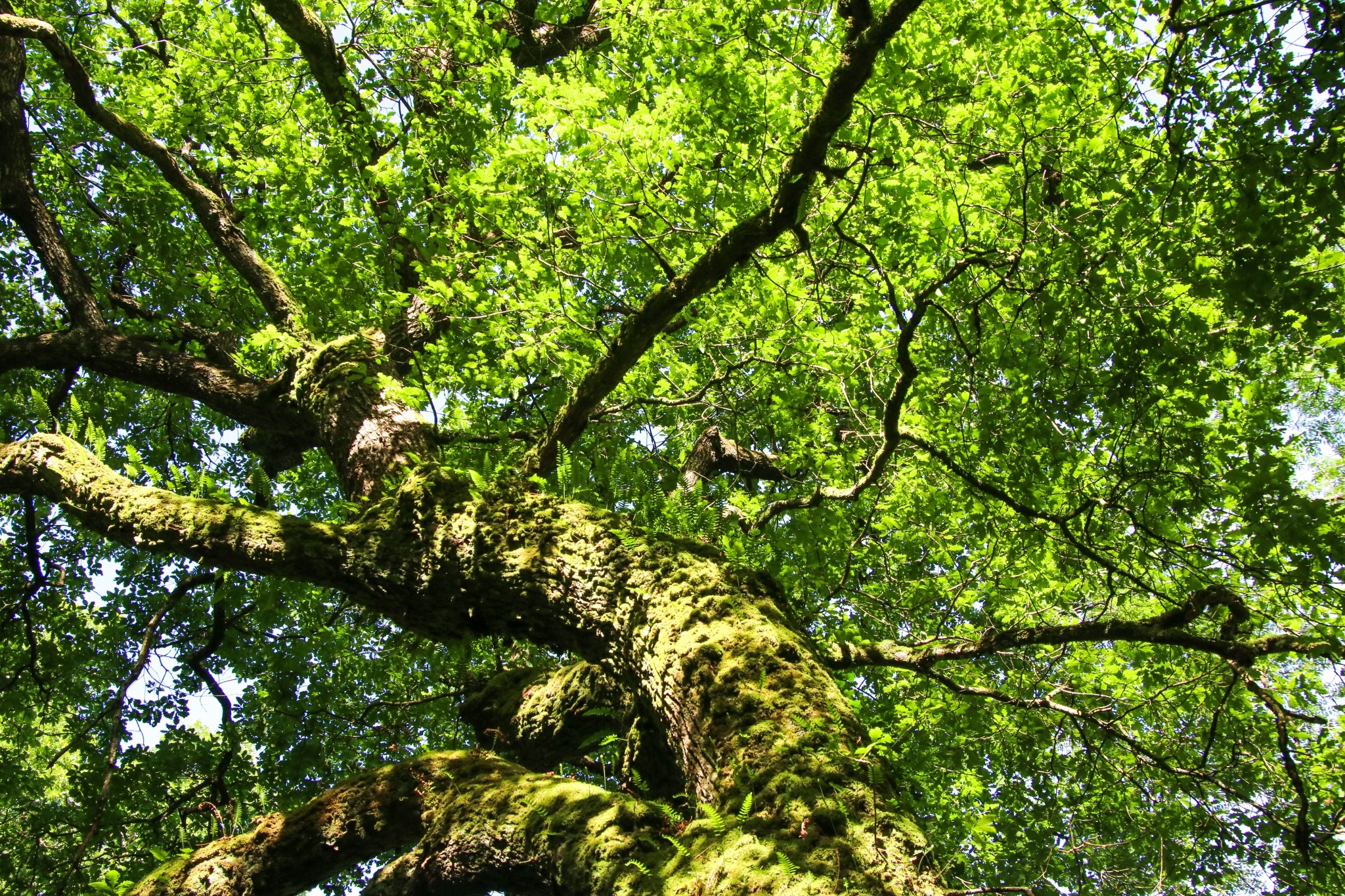THE GREEN MOVEMENT’S SECRET WEAPON

Edit, June 2024: I wrote this post in March 2021 and in the intervening years my opinion on this topic has changed. I now think we need to carefully assess the impact of green capitalism and economic arguments on our relationship with the natural world and our hopes for the future. Seeing the natural world as 'natural capital', monetising it, might actually prohibit the connection we need to find a better way forward. It's a topic I'm still exploring. Recently, I've found the following books interesting: The Value of a Whale by Adrienne Buller, The Death of Nature by Carolyn Merchant, and What Money Can't Buy, by Michael J. Sandel.
When you think of environmental campaigning, what do you think of first? My initial vision is daytime TV adverts that play on the heartstrings – devastating footage of starving polar bears or piles of dead hunting trophies. Let’s call these the sob story campaigns.
A second type of campaigning focuses on the good; it encourages people to be concerned about biodiversity loss by ‘rewilding’ them: by reconnecting them with the natural world and revealing to them the wonders that are all around us. Many of my posts, and most David Attenborough documentaries, fall largely into this category. I’ll call this approach the reconnection campaign.
Sob stories and reconnection campaigns are certainly successful and worthwhile, they’re culturally important and they’re also the approaches that feel most obvious and comfortable to those of us who love and value the natural world for its own sake.
However, in a time when capitalism and consumerism are king and queen of the market, and when industry and corporate priorities are top of the agenda for politicians, there’s a new kid on the campaigning block: the economic approach.
THE ECONOMIC APPROACH
Okay, so the economic approach isn’t brand new; some people have been arguing for the economic benefits of preserving the natural world for decades. Now, though, climate change and biodiversity loss are spiralling out of control and becoming mainstream matters of concern, and this means more economists are, thankfully, jumping onto our bandwagon. Many campaigners think it’s time to bring economics out of the Green Movement’s armoury.
The key to the economic approach is developing an analysis of and appreciation for the contribution the natural world makes to economic output. In a market economy, some things are routinely undervalued either because it's not easy to assign a monetary value to their input or because they are out of sight and out of mind. Some aspects of our natural world are reasonably well-appreciated as economic assets, fisheries being the prime example. Other services, though, are provided by the natural world for free but largely overlooked as contributors to economic output – things like the breaking down of waste material and recycling nutrients, and the capture of carbon.

In terms of input, economists refer to different types of capital as drivers of productivity and output. Examples of types of capital include financial, land, labour (human capital), and social capital.
The gaping hole in this traditional list of capital inputs is natural capital: the capital contributed by the natural world, without which we couldn’t survive, never mind produce goods or services. Availability of capital determines economic output and growth: the more natural capital is depleted, the lower the stock of environmental resource and therefore the lower the economic output.
Analysing whether natural capital stock is declining means determining whether practices are sustainable; sustainable practices maintain natural capital, whilst unsustainable practices deplete natural capital.
The demands we currently place on the natural world are equivalent to the sustainable outcome of 1.6 Earths. Given we only have one Earth, this means we're rapidly depleting the natural capital available to us. This is particularly concerning because some of the depletion is irreversible; unlike financial and human capital, natural capital is not necessarily a magical cup that keeps refilling each time it's depleted.
OUR OBSESSION WITH ECONOMIC GROWTH
Sir David Attenborough asked
‘will humankind ever be able to move beyond its growth phase, mature and settle into a plateau? Can it, perhaps…become like the Amazon – thriving, refining, improving sustainably over the long term, without getting bigger?’
Many of us, Sir David Attenborough included, hope that we'll eventually drop our obsession with never-ending economic growth (currently measured as gross domestic product (GDP)) and focus on balancing economic output with other valuable goals, such as ecological footprint and human health and wellbeing.
There are positive signs: in 2019, New Zealand’s Prime Minister Jacinda Ardern dropped GDP as its primary measure of economic success and instead created an index that incorporated people and planet alongside profit. Professor Dasgupta’s February 2021 report to the British government on the economics of biodiversity suggests a measure of ‘inclusive wealth’ which would encourage more sustainable growth by measuring the value of our assets (including natural assets) to give a long-term view.
Ultimately, whether you’re of the view that we should always seek to improve economic growth and increase GDP, or you share Attenborough’s and Ardern’s view that seeking endless economic growth is both futile and damaging, we need to account for the value of natural capital in mainstream economics otherwise neither preserving the planet and our health nor continuous economic growth will be possible.
Realistically, economists know that endless economic growth is impossible – the laws of physics just don't allow infinite increases in the efficiency with which we use natural capital – but even while the short-term focus on increasing economic growth continues, analysis of the value of natural capital can form an incredibly important part of environmental campaigning.
ECONOMIC CAMPAIGNING
Professor Dasgupta’s report concludes that
‘our economies, livelihoods and wellbeing all depend on our most precious asset: nature’.
Now, think of a list of people who you think need persuading to take better care of our natural world – they could be politicians, land owners, business owners, anyone. Let’s try and persuade the people on your list using arguments in support of the green movement.
Would the people on your list take notice of a convincing argument about the physical harm we’re causing animals?
You’ve probably only persuaded a couple of people on your list with this topic.
Would they care about preserving the beauty and magic of the world around us?
Again, you’ve probably only convinced a few people on your list by this point.
Would they care about preserving the environment in the interests of human health?
Okay, you’re probably gaining a bit of traction now with the remainder of your list – but here’s the killer question:
Would they care about biodiversity loss if they understood that it directly translates into reduced profits, reduced productivity, and reduced economic output?
There’s nobody left on your list now, right?
That triplet of ‘economies, livelihoods and wellbeing’, together with the intrinsic value of nature, appeals to everyone on my list, and every person, business, and organisation I can think of.
BRINGING PEOPLE TOGETHER
Every individual and entity has different priorities, and there are many valid priorities (especially on an individual level) that might trump environmental concern in relation to a given issue. Whilst it would be lovely if every person in the UK and beyond cared deeply about nature for nature’s sake and had the privilege and resources necessary to put nature above other concerns, the reality is this just isn’t the case, and if the green movement centred solely on trying to convince everyone to love the natural world as much as we do, it wouldn’t achieve its goals.
The key is to create a broad argument and approach that encompasses varying concerns and priorities, linking up people with a common cause even if their reasons for supporting that cause are entirely different.
ECONOMICS AS A DEAL-CLOSER
The real picture of convincing any individual or organisation isn’t black and white. We can’t split people into those who care about the environment and those who will only be convinced if it means more money in their pocket.
The reality is that most people fall on a spectrum in relation to each priority – the real value of the economic argument, in my view, is as a swinger – a deal-closer.
I believe there are many people and businesses in the world that do care about our natural world, but who feel restrained by other concerns such as keeping their business afloat, satisfying shareholders, earning a living, or furthering progress in other areas. For those people, the economic argument for environmental protection is one that can tip the balance in favour of the green movement.

RESOURCES
The Economist on how economists should think about biodiversity: https://www.economist.com/finance-and-economics/2021/02/06/how-should-economists-think-about-biodiversity
Professor Dasgupta’s review on The Economics of Biodiversity: https://www.gov.uk/government/publications/final-report-the-economics-of-biodiversity-the-dasgupta-review
For examples of how economic justifications can underpin specific campaigns see Rebirding (where Macdonald explains in detail how land can be worth more wild and the economics of ecotourism) and Wilding (where Tree details the change in her estate from a loss-making traditional farm to a sustainable rewilding haven – and all the economics benefits that brought).
MACONDALD, B., 2020. REBIRDING. PELAGIC PUBLISHING.
TREE, I., 2019. WILDING. PICADOR.
Share with your friends
Subscribe to learn more
Join me in exploring our natural world and cultural heritage as we learn how to protect and restore it. Get notified on my latest posts and a monthly newsletter on wider conversation topics for us to chat about.
Recent Posts
If you enjoyed this one, then you might like these too.